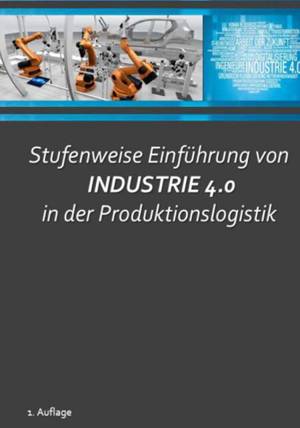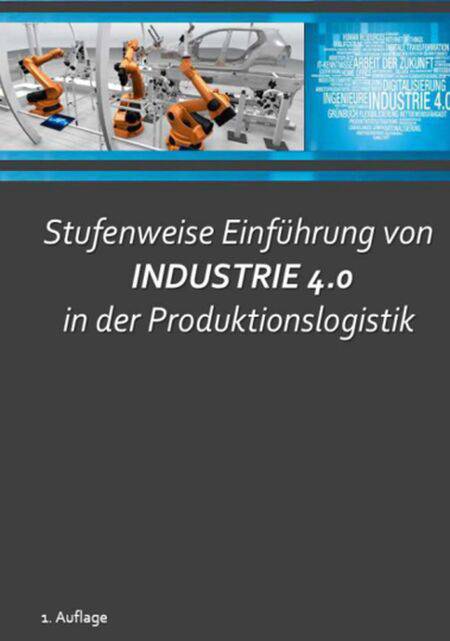
- Retrait gratuit dans votre magasin Club
- 7.000.000 titres dans notre catalogue
- Payer en toute sécurité
- Toujours un magasin près de chez vous
- Retrait gratuit dans votre magasin Club
- 7.000.0000 titres dans notre catalogue
- Payer en toute sécurité
- Toujours un magasin près de chez vous
Stufenweise Einführung von Industrie 4.0 in der Produktionslogistik EBOOK
Bernhard GaumDescription
Kurzfassung
Ziel der vorliegenden Arbeit ist es, ein Konzept für die stufenweise Einführung von Industrie 4.0 aufzuzeigen und eine phasenweise Anwendung in der Produktionslogistik an einem Beispielunternehmen "Mustercompany" durchzuführen. Dazu wurden theoretische Vorgehensmodelle (Stark et al. (2015), Merz (2016), Anderl et al. (2015), VDMA (2015), Biedermann (2016), Bauernhansl (2014)) auf ihre Anwendbarkeit für die stufenweise Einführung im besagten Bereich bewertet. Mit diesen Erkenntnissen wurde anschließend ein bevorzugtes Vorgehensmodell erarbeitet und ein Leitfaden für die stufenweise Einführung von Industrie 4.0 für die Produktionslogistik erstellt. Des Weiteren werden die Methoden Befragung, Beobachtung und Test angewendet.
Das Ergebnis ist ein Leitfaden zur Bewertung der Industrie 4.0 Erfahrungen des Unternehmens, sowie eine strukturierte Vorgehensweise zur Definition potentieller Industrie 4.0 Projekte zur stufenweisen Einführung neuer Technologien in der Produktionslogistik zur Erreichung der Industrie 4.0 Stufe.
Diese Arbeit ist sowohl für Unternehmen, welche den Weg in Richtung Industrie 4.0 gehen wollen, als auch Individuen mit Begeisterung für Industrie 4.0 interessant.
Abstract
The purpose of this thesis is to define a concept for a step by step implementation of industry 4.0 in the production logistics area which can be used in general for all Companies. Therefore, actual theoretical procedure models (Stark et al. (2015), Merz (2016), Anderl et al. (2015), VDMA (2015), Biedermann (2016), Bauernhansl (2014)) were evaluated for practicability in the named area at "Mustercompany". In this thesis methods of survey, direct observation and testing of technologies were executed. Based on the earned experiences a concept of industry 4.0 implementation for production and logistic could be developed.
The result is a rated economic scenario of a step by step implementation of industry 4.0 scenario based on a real-life project. In conclusion this thesis provides knowledge to companies which want to implement industry 4.0 in its production logistics area and also to still students thirst for knowledge who are inspired of the way how to implement industry 4.0.
Spécifications
Parties prenantes
- Auteur(s) :
- Editeur:
Contenu
- Langue:
- Anglais
Caractéristiques
- EAN:
- 9798215658420
- Date de parution :
- 30-03-23
- Format:
- Ebook
- Protection digitale:
- /
- Format numérique:
- ePub

Les avis
Nous publions uniquement les avis qui respectent les conditions requises. Consultez nos conditions pour les avis.






